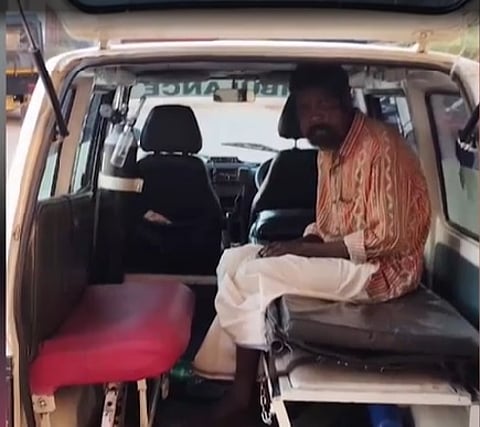
A daily-wage worker was allegedly kicked in the teeth by his employer's son for requesting Rs100 extra as wages last Friday in Wayanad, Kerala. Babu, the tribal worker, suffered severe injuries on his face. He lost three teeth, and his lower jaw got damaged. In excruciating pain, Babu lost consciousness and fell to the ground. He remained there for hours, and on the next day, in pain, he limped back to his house when neighbors noticed injuries and rushed him to the hospital.
"My job is to pluck pepper. Damodaran, the employer, gives me only Rs600 per day. I asked for a meagre increase in the wage by Rs100. This led to an altercation, and Arun, Damodaran's son, kicked in my mouth," Babu told The Mooknayak. Babu also alleged that Damodaran and Arun had come to the hospital and offered him Rs1,000 to remain silent.
"They told me not to give a case. They advised me to tell the police that I suffered injuries when I fell after I drank liquor. I said, no," Babu added. Meanwhile, talking to the media, Damodran refuted the allegations.
"Arun was not here. He had gone to Sultan Bathery to buy parts for his bike. He came back only by 8 pm," Damodaran added. Meanwhile, the media reported that local police have filed a case against Arun under the provisions of SC/ST Atrocities Act, while Arun is said to be at large.
Talking to The Mooknayak, Dhanya Raman, a Dalit activist in Kerala, said, "there is no surprise in seeing such exploitation in Kerala. We have now come to terms with it."
"Babu's case got leaked by neighbors. So, we are discussing this. There are many Babus in Kerala. Keralites claim to be the most literate and progressive community in India. But the fact is that they still carry the baggage of casteism," Dhanya said.
According to Dhanya, the state is the culprit for such incidents. "Never in any incident, a moral punishment is awarded to the culprits. So, there is no fear in mind for the upper-class people. Additionally, when there is nobody to run for justice for Dalits, such incidents repeat," she added.
Mini Mohan, a sociologist, said that despite the number of SC/ST people being a little over 10 percent of Kerala's total population, as they aren't organized they can be subjected to exploitation easily.
"In Kerala, both Communists and Congress governments have turned blind towards Dalits' struggle. Many still struggle to get even primary education due to lack of money, books, and gadgets," she added.
Mob lynching: In February 2018, Madhu, a tribal man in Attappadi, got beaten by a mob. The abusers alleged that Madhu took groceries from a nearby shop. He died in a police vehicle on the way to the hospital. Interestingly, the case is still in court, delaying justice for Madhu's family, as many witnesses have turned hostile.
In Kerala, the minimum wages are above Rs600. Kerala Economic Review 2022 reveals that Kerala ranks top in daily wage rate among the states with Rs677 followed by Kashmir with Rs483 and Haryana with Rs384.4.
Kerala’s high level of education, social environment, political views, and the emergence of labour welfare boards have contributed to higher wages in the state.
In Kerala, the trade unions are also quite vigilant in monitoring the implementation of minimum wages.
The wage rates of male and female unskilled labourers in Kerala are much higher than the national average wage as well as the minimum wage prescribed for the state.
The daily wage rate in Kerala has two times higher than India’s average. The daily wage rate in Kerala has been increasing over the years.
According to ILO, minimum wages have been defined as “the minimum amount of remuneration that an employer is required to pay wage earners for the work performed during a given period, which cannot be reduced by collective agreement or an individual contract."
According to Kerala State Crime Records Bureau (SCRB), the number of cases registered under the SC/ST Atrocities Act (1989) in Kerala hovers around 1,000 every year.
In 2016, when it was 992, in 2017 it rose to 1060, and in 2018, it was 1025. In 2019 and 2020, it was 998 and 976, respectively. And in 2021, it was 1081, and in 2022 till December it was 1257, the highest in the last six years.
Meanwhile, a document placed in parliament in 2022 reveals that the conviction rate in SC/ST atrocities act is less than 10 percent in Kerala.
You can also join our WhatsApp group to get premium and selected news of The Mooknayak on WhatsApp. Click here to join the WhatsApp group.